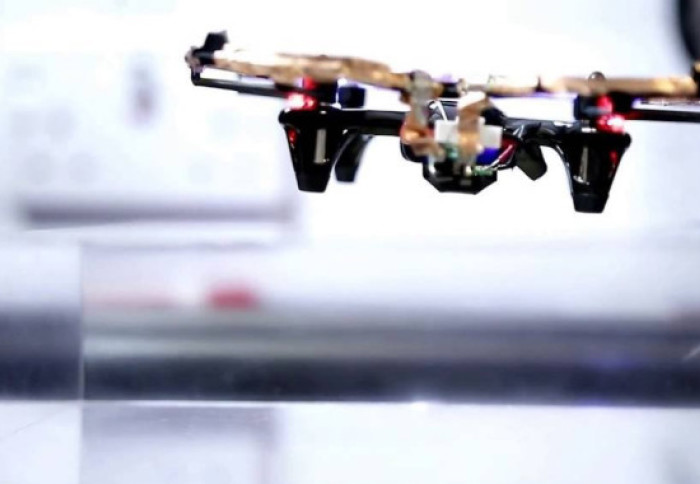EEE launches its first Hardware Showcase event
by Jane Horrell

Students deciding which of our degree pathways to follow are invited to a special event to meet staff and see prototypes of their research hardware.
Electrical and Electronic Engineering is a very broad field, and so our undergraduate degrees are stuctured to help students choose a route to suit their developing skills and interests.
Our teaching is research-led, with a common first year programme that gives all students a solid grounding in the fundamental skills and theory. The Hardware Showcase will give our first years the opportunity to talk to staff and see some of the latest hardware prototypes staff have built for their research and teaching, to help them make an informed choice about which path to follow for the rest of their studies.
The Hardware Showcase is on Monday 28 February, between 12 and 2pm, in rooms 403 and 406/7. Refreshments available. Please look out for your email invitation and register to attend using the online form in the email.
Hardware demos featured will include:
|
Wireless power technology applications: mopeds, quadcopter drones and more |
Nunzio Pucci and Professor Paul Mitcheson |
|
|
Learning embedded systems technology through applications: a musical keyboard, a motor kit and a wildlife camera |
Dr Ed Stott |
|
|
Learning control engineering: the drones of the Control Systems Lab |
Dr Simos Evangelou and Professor Thomas Parisini |
|
|
Wearable electronics |
Stefan Karolcik and Professor Pantelis Georgiou |
|
|
A DJ music controller |
Dr Ad Spiers |
|
|
The Personal Robotics Laboratory: mobile bimanual robots and assistive robot wheelchairs |
Professor Yiannis Demiris |
|
|
Memristor applications for high frequency analogue circuits |
Adil Malik and Dr Christos Papavassiliou |
|
|
The Modular Multilevel Converters of the Maurice Hancock Smart Energy Lab |
Dr Adria Junyent-Ferre and Professor Tim Green |
|
|
Wearable sensors based on knitted garments |
Dr Kristel Fobelets and Dr Christoforos Panteli |
EEE or EIE stream?
Our EEE (Electrical and Electronic Engineering) degrees cover multiple areas of expertise including nano-devices in integrated circuits, analogue circuits, power engineering and power electronics, that we use to in applications such as bio-medical devices, mobile communications, renewable generation, smart power networks or electric vehicles.
The EIE (Electronic and Information Engineering) degrees combine modules from electronic engineering, computer science, and information engineering, and teach you how to use software and hardware to design complex information processing systems such as autonomous cars or robotic health assistants.
Come and meet us
Whether you're undecided between EEE and EIE, or still discovering which topics interest you the most, or thinking about career opportunites, or even if you simply enjoy getting a close up look at our department's latest research, this will be a great opportunity to talk to staff about their work and their teaching across their specialist fields in Electrical and Electronic Engineering.
Article text (excluding photos or graphics) © Imperial College London.
Photos and graphics subject to third party copyright used with permission or © Imperial College London.
Reporter
Jane Horrell
Department of Electrical and Electronic Engineering